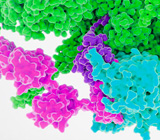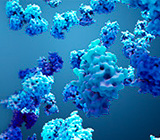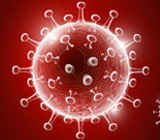-
REAGENT SERVICES
Hot!
-
Most Popular Services
-
Molecular Biology
-
Recombinant Antibody/Protein
-
Reagent Antibody
-
CRISPR Gene Editing
-
DNA Mutant Library
-
IVT RNA and LNP Formulations
-
Oligo Synthesis
-
Peptides
-
Cell Engineering
-
- CRISPR/Cas9 sgRNA
- CRISPR/Cas12a crRNA
- Prime Editing Guide RNA
- Base Editing Guide RNA
- HDR Templates
- gRNA + HDR Template Design Tools
- cGMP Guide RNA
- cGMP HDR Templates
- CRISPR/Cas Proteins
- CAR-T Knock-in Optimization Kit
- CRISPR Plasmids
- CRISPR gRNA Plasmid Libraries
- CRISPR Cell Lines
- Microbial Genome Editing
-
-
PRODUCTS
-
Most Popular Reagents
-
 Instruments
Instruments
-
Antibodies
-
ELISA Kits
-
Protein Electrophoresis and Blotting
-
Protein and Antibody Purification
-
Recombinant Proteins
-
Molecular Biology
-
Stable Cell Lines
-
Cell Isolation and Activation
-
 IVD Raw Materials
IVD Raw Materials
-
 Therapy Applications
Therapy Applications
-
Resources
-
- Pharmacokinetics and Immunogenecity ELISA Kits
- Viral Titration QC ELISA Kits
- -- Lentivirus Titer p24 ELISA KitHot!
- -- MuLV Titer p30 ELISA KitNew!
- -- AAV2 and AAVX Titer Capsid ELISA Kits
- Impurity Test ELISA Kits
- -- BSA ELISA Kit, 2G
- -- Cas9 ELISA KitNew!
- -- Protein A ELISA KitNew!
- -- His tagged protein detection & purification
- -- dsRNA ELISA Kit
- -- Endonuclease ELISA Kit
- COVID-19 Detection cPass™ Technology Kits
-
- Automated Maxi-Plasmid PurificationHot!
- Automated Mini-Plasmid PurificationNew!
- PCR Reagents
- S.marcescens Nuclease Benz-Neburase™
- DNA Assembly GenBuilder™
- Cas9 / Cas12a / Cas13a Nucleases
- Base and Prime Editing Nucleases
- GMP Cas9 Nucleases
- CRISPR sgRNA Synthesis
- HDR Knock-in Template
- CRISPR Gene Editing Kits and Antibodies
-
![AmMag™ Quatro Automated Plasmid Purification]() AmMag™ Quatro automated plasmid purification
AmMag™ Quatro automated plasmid purification
-
![Anti-Camelid VHH]() MonoRab™ Anti-VHH Antibodies
MonoRab™ Anti-VHH Antibodies
-
![ELISA Kits]() ELISA Kits
ELISA Kits
-
![Precast Gels]() SurePAGE™ Precast Gels
SurePAGE™ Precast Gels
-
![Quatro ProAb Automated Protein and Antibody Purification System]() AmMag™ Quatro ProAb Automated Protein and Antibody Purification System
AmMag™ Quatro ProAb Automated Protein and Antibody Purification System
-
![Target Proteins]() Target Proteins
Target Proteins
-
![AmMag™ Quatro Automated Plasmid Purification]() AmMag™ Quatro automated plasmid purification
AmMag™ Quatro automated plasmid purification
-
![Stable Cell Lines]() Stable Cell Lines
Stable Cell Lines
-
![Cell Isolation and Activation]() Cell Isolation and Activation
Cell Isolation and Activation
-
 IVD Raw Materials
IVD Raw Materials
-
![Quick
Order]() Quick Order
Quick Order
-
![Quick
Order]() Quick Order
Quick Order
- APPLICATIONS
- RESOURCES
- ABOUT US
- SIGN IN My Account SIGN OUT
- REGISTER

![Amino Acid Code Amino Acid Code]()
Biology Terms Dictionary
This Biology terms dictionary provides query services for biology and biochemistry terms. Please enter the biology or biochemistry terms you want to search.
List by Alphabet: A B C D E F G H I J K L M N O P Q R S T U V W X Y Z
Protein Expression in CHO Cells
Introduction
Chinese Hamster Ovary (CHO) cells are one of the most widely used platforms for recombinant protein production, particularly in the pharmaceutical industry. Their versatility, scalability, and ability to perform complex post-translational modifications (PTMs) similar to those in human cells make them ideal for producing therapeutic proteins, such as monoclonal antibodies and hormones. CHO cells are preferred in commercial production due to their adaptability to large-scale bioreactor systems, robust growth in suspension cultures, and well-established regulatory acceptance.
Mechanisms of Protein Expression in CHO Cells
1. Stable and Transient Transfection
CHO cells can express recombinant proteins through either stable or transient transfection, depending on the production goals:
• Stable Transfection:
◦ Involves the integration of foreign DNA into the host genome, leading to long-term expression.
◦ Essential for large-scale production of therapeutic proteins, such as monoclonal antibodies.
◦ Stable transfectants are selected using antibiotic resistance markers (e.g., puromycin or G418). They can be further amplified using methotrexate (MTX) or gene copy number expansion.
• Transient Transfection:
◦ DNA remains episomal, providing temporary protein expression without integration into the genome.
◦ Suitable for research, small-scale protein production, and early-stage experiments.
◦ CHO cells are less commonly used for transient transfection compared to HEK293 cells but remain an option for rapid protein production.
2. Post-Translational Modifications (PTMs)
CHO cells possess the necessary enzymatic machinery to perform human-like PTMs, including:
• Glycosylation: Adds carbohydrate moieties that are essential for protein stability, solubility, and bioactivity.
• Disulfide Bond Formation: Ensures correct folding of proteins, particularly antibodies.
• Phosphorylation: Modulates protein function and interaction.
These modifications are essential for the therapeutic activity of complex proteins, particularly monoclonal antibodies, cytokines, and enzymes.
Advantages of CHO Cells in Protein Expression
• Human-like PTMs: CHO cells provide glycosylation and other modifications similar to those found in human proteins, ensuring bioactivity and stability.
• High Scalability: CHO cells can grow in suspension cultures, making them suitable for large-scale production in bioreactors.
• Adaptability to Serum-Free Media: CHO cells grow well in chemically defined, serum-free media, reducing contamination risks and improving product consistency.
• Regulatory Acceptance: Many FDA-approved biologics, such as monoclonal antibodies, are produced in CHO cells, ensuring that processes meet stringent regulatory standards.
• Genetic Stability: CHO cells can stably express recombinant proteins over extended periods, making them reliable for long-term production.
Industrial Applications
1. Monoclonal Antibody Production
CHO cells are the industry standard for the large-scale production of monoclonal antibodies used in cancer immunotherapy and autoimmune disease treatment. Their ability to perform complex glycosylation ensures high bioactivity and therapeutic efficacy.
2. Therapeutic Protein Production
CHO cells are used to produce a wide range of therapeutic proteins, such as erythropoietin (EPO), interferons, and clotting factors, all of which require proper PTMs to function effectively.
3. Vaccine Production
CHO cells play a role in vaccine manufacturing, particularly for viral vaccines and subunit vaccines. They are also employed in the development of virus-like particles (VLPs) for next-generation vaccines.
Upstream and Downstream Processing
1. Upstream Processing
Upstream processing focuses on optimizing the growth conditions of CHO cells to maximize protein yield:
• Media Optimization: Use of serum-free, chemically defined media to enhance growth and productivity.
• Bioreactors: Stirred-tank or wave bioreactors are commonly used for large-scale production, with tight control over pH, oxygen, and nutrient levels.
• Feed Strategies: Fed-batch and perfusion cultures are employed to extend cell growth phases and increase protein production.
2. Downstream Processing
After protein expression, purification and quality control are critical to ensure product consistency:
• Protein Purification: Affinity chromatography (e.g., Protein A chromatography for antibodies) and size-exclusion chromatography are used to isolate the target protein.
• Glycosylation and Structural Analysis: Techniques such as mass spectrometry and HPLC are employed to ensure correct PTMs.
• Quality Control: Analytical techniques, such as SDS-PAGE and ELISA, are used to confirm protein purity and functionality.
GenScript Services and Solutions
GenScript offers a wide range of services to support protein expression in CHO cells, including:
• TurboCHO™ Stable Cell Pool & Cell Line Platform: GenScript provides custom development of CHO stable cell lines optimized for high-yield production of therapeutic proteins.
• Media and Process Optimization: Expertise in optimizing serum-free media and feed strategies to enhance cell growth and protein production.
• Transient Expression Systems: Although transient expression is less common in CHO cells, GenScript offers rapid protein production services for early-stage research.
These solutions accelerate the development and commercialization of biologics, ensuring high-quality production from research to clinical stages.
Challenges and Future Directions
• High Production Costs
CHO cell culture is resource-intensive, requiring complex media and specialized equipment, which increases production costs.
• Long Development Time
The process of generating stable cell lines can take several months, delaying the time-to-market for therapeutic products.
• Yield Optimization
Despite the advantages of CHO cells, achieving high protein yields requires fine-tuning of upstream and downstream processes.
Future Directions
• Genome Editing and Synthetic Biology: Advances in CRISPR and synthetic biology are enabling the development of CHO cells with optimized metabolic pathways and higher productivity.
• Continuous Bioprocessing: The adoption of continuous manufacturing processes is expected to improve efficiency and reduce costs.
• High-Throughput Screening: Automation and high-throughput screening systems will accelerate clone selection and process optimization.
Conclusion
CHO cells have become the gold standard for recombinant protein production due to their ability to perform complex post-translational modifications, scalability in bioreactor systems, and regulatory acceptance. They play a pivotal role in the production of monoclonal antibodies, therapeutic proteins, and vaccines. With continuous innovations in upstream and downstream processing, as well as advances in synthetic biology and continuous bioprocessing, CHO cell-based protein expression systems will remain at the forefront of biologics manufacturing.
- Tags:
- Protein
Related Biology Tools
-
GenSmart™ Codon Optimization
GenSmart Optimization is a free online tool for performing codon optimization to improve gene expression. GenScript's patented algorithms are integrated into the tool to optimize the computing capability of high-performance sequence generation.
-
DNA Construct Design Tool
GenSmart™ Design is a free online DNA construct design tool developed by GenScript. GenSmart™ Design has two design modules, the Create Construct module for individual plasmid design and the Create Library module for DNA library design.
-
Codon Frequency Tables
This online tool shows commonly used genetic codon frequency table in expression host organisms including Escherichia coli and other common host organisms.
Service and Products

Protein Expression
GenScript recombinant protein and rAb services provide high quality recombinant proteins and rAbs for a variety of downstream research applications.

Bacterial Expression
One-stop service from Sequence to Protein starting from $1600, 4 weeks.

Insect Expression
GenScript's BacuVance baculovirus expression system was developed by our in-house team of scientists for virus production and expression of recombinant proteins from baculovirus-infected insect cells.

Mammalian Transient Expression
Proprietary High Density (HD) expression system, enhance the protein yield up to 100 fold, achieve antibody titers up to 3 g/L.

Reagents for COVID-19 Research
Gram level, ready to ship RBD proteins, ACE2 assay cell lines and pseudovirus.
-
Top Search
-
Hot Glossary
-
Antibody
If you know of any terms that have been omitted from this glossary that you feel would be useful to include, please send detail to the Editorial Office at GenScript: website@genscript.com
If your term is adopted, we will send 1,000 EzCoupon points to your GenScript account.
-





































